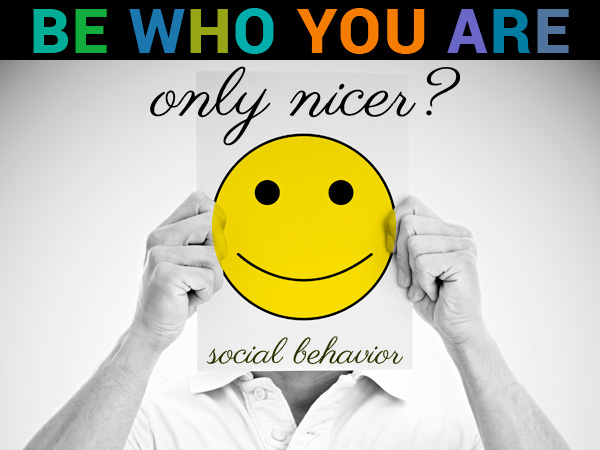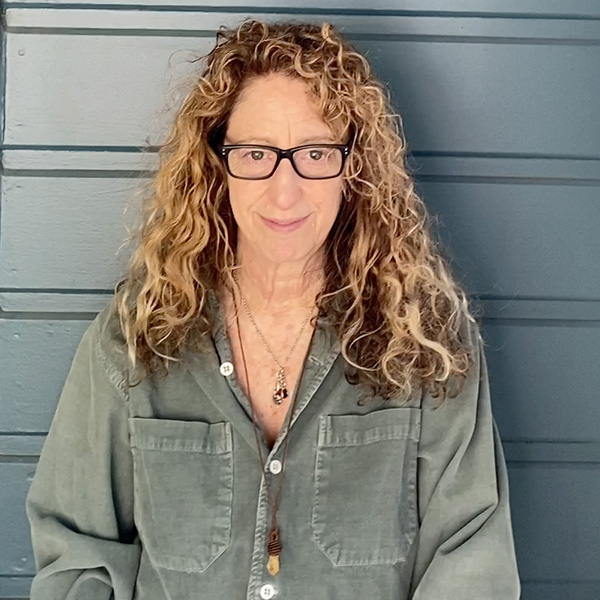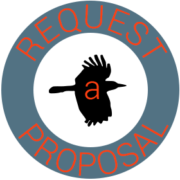Social Behavior: Be Who You Are, Only Nicer?
[Tweet “Sugar and Spice, Naughty or Nice, How About Real Instead?”]
The words “Only Nicer” in the title could imply that I’m either hinting you aren’t a nice person or that even if you are generally affable, I might be advocating tempering your social behavior in ways that risk being artificial. But I’m not. Not exactly. I’m not suggesting falsity of any kind. But this bears thinking about. How we can mediate our own moods, attitudes, words and actions towards optimal communication while engaging on social media? What can we do to not only get along, but to pass along the most benefit, stand to gain the most and succeed at the goals we’ve set ourselves. Because, let’s face it, it can be challenging at times. We are talking to each other and we want to make sure we are accurately understood and that we are capable of understanding others. It can take a certain amount of effort. And we can’t afford to be lazy.
Transparency on the web is unavoidable. Everything we do adds up, can be examined and compared with everything else we’ve done. Consistency is requisite. So here we are, with a mandate for being ourselves authentically [I know that word has become suspect and somewhat unpopular, but it’s just so dang accurate and I choose to use it]. We are representing brands in ways that match their true nature and intentions whether they are our own or one we are employed by.
We may think all’s well and good as long as things are going smoothly. But the moment there’s a bump in the road, a misunderstanding, a disagreement, a challenge to our integrity, a sour person commenting on our thread, someone who is angry at something and taking it out on us, hurt feelings, the resulting insecurity… it gets harder and confusing fast.
Without the nuances of body language and the sounds of our voices we are stuck with our typed words [unless of course, you are using video and Hangouts On Air- but for this discussion we’ll stick to words] And we are usually “speaking” with people we have never met, oftentimes, from other cultures, in parts of the world that are unfamiliar to us in practical terms. Words have different nuances and meanings, what we may think of as common expressions turn out to be something entirely different to someone else. There is a fresh and growing need for open-mindedness, patience and curiosity. It’s on us to learn to inquire about intentions, reasons, making sense. Keeping peace.
This is a fairly universal dilemma. Most of us have come up against it at one time or another. How should we act when presented with a situation that makes us uncomfortable, frustrated, even angry or that requires an extra amount of patience and respect? [Tweet “How do we remain true to who we are in our expression yet manage to co-exist on friendly terms?”]
Relationships Help
Here’s where building sound relationships in social media comes into play. We speak readily of relationship building online in our efforts to market our brands and ourselves. We know how they contribute to our education, exposure, reach, support and endorsements, rankings, networking expansion. As Eric Enge, CEO of Stone Temple Consulting, says in his article on Copyblogger, we also gain access to “Other People’s Audiences” (OPA) through relationship.
But what we talk about less is how far establishing relationships goes towards beneficial communication as David Amerland reminds us on Zara Altair’s “Midweek Zap”. It stands to reason that familiarity increases positive communication. As we get to know someone, even if they are on the other side of the planet, we learn about them. We learn their communication style, their philosophies, their tone and their humor. As connections grow and groups and smaller communities form, there are symbiotic relationships that also develop. As within any culture, social mores surface, people who are bonded – even casually – will tend to stick up for each other, have each others’ backs, help conversations to stay civil and productive. Help out, move things along in the right direction.
Who are you? No, really. Who are you?
This is what it comes down to. Knowing who we are and being secure in that knowledge. It’s only from a place of self-awareness that we can somewhat safely and consistently manage our behavior. Emotional intelligence has a huge role and can help guide us through the tricky layers of engagement – being able to tolerate our own or someone else’s seemingly irrational emotion, ups and downs, quirky cutting or sarcastic streak, strange or unexpected way of expressing themselves. Or simple misunderstandings.
Who We Are Really
Our personalities are what they are. Our character pretty well established. Our behavior, on the other hand is malleable. We can learn what works and is sustainable and what’s not. So rather than faking niceness, and hiding our true selves in order to do that, we can regard the exchanges we seek on social media with just a little extra caution, a smart balance of spontaneity and intelligence, compassion and careful listening before speaking too soon. Kindness may result. Niceness may also.
Be yourself, only perhaps with an added awareness that we can take our time before responding, step away from the device if needed and use respect, our politeness muscles and a knowledge that we are all arriving at this destination from differing perspectives and customs so we need to act accordingly.
SUBSCRIBE & Receive Blog Notifications Of New Posts:
* Don’t miss any of our blog posts! Subscribe at the top right of the page.
Google Plus Post Notifications:
* Would you like to be included in my Google Plus Notification Circle?
If you would, please visit the invitation and let me know in the comments with a +mention of my name. Thanks!
Pre-Remix photo iStock Photo, Remix: Gina Fiedel






